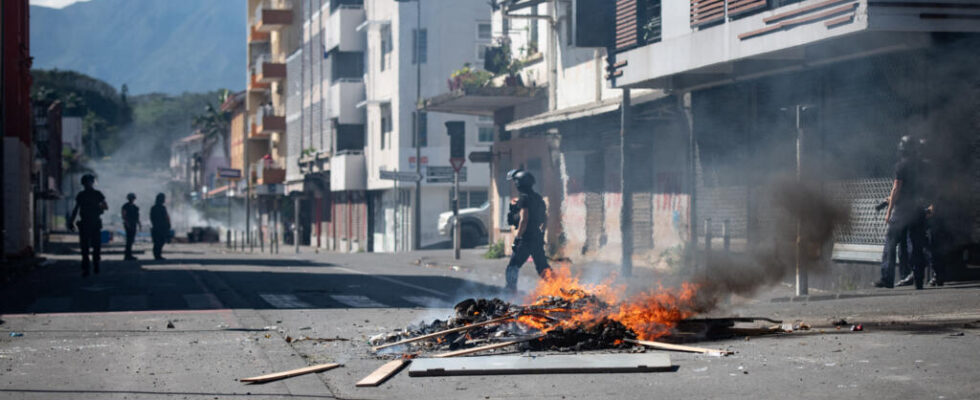End of the lull in New Caledonia, because for 48 hours the blockades and clashes between separatists and the police have resumed on the French archipelago in the Pacific. In particular, the arrest and transfer to the mainland of militant figures.
3 mins
In a press release published Monday June 24 in the morning, the high commission which represents the French State in New Caledonia takes stock of the night from Sunday to Monday. A restless night throughout Grande-Terre, the main island of the archipelago, while in recent weeks the riots remained concentrated in the capital Nouméa and its surroundings.
Last night, violence took place both in the north and south of the island. The police were attacked and several fires broke out as well as the construction of roadblocks on the main roads. The town hall of Koumac was notably set on fire. In Dumbéa, near Nouméa, it was the firefighters who were attacked while they were taking a patient to the Médipole, they were victims of stones and possible gunshots at their truck.
Schools closed
This Monday, public schools in Dumbéa remained closed. The town hall justifies this decision by highlighting “ the inability of the state to provide security “.
In Nouméa, in the Magenta district, the premises and vehicles of the municipal police were set on fire. A situation which is therefore becoming tense again everywhere on the island, six weeks after the start of the riots against a backdrop of reform of the electoral body. This reform project which is no longer on the agenda by force of circumstances, since the dissolution of the National Assembly by Emmanuel Macron two weeks ago.
Transfers of activists to the metropolis
What ignited the powder was the arrest, indictment and express transfer on Sunday June 23 towards the metropolis of eleven activists from the Field Action Coordination Cell (CCAT). Among the latter is his spokesperson, Christian Tein, transferred to the Mulhouse remand center, in Haut-Rhin. The CCAT is accused by the authorities of being at the origin of the uprising against electoral reform and its activists were therefore sent to mainland France to be incarcerated due to the security risk of detention in New Caledonia.
But the 17,000 kilometers distance of these local figures arouses emotion and anger on the archipelago. Because among these transferees is a woman, Brenda Wanabo, mother of three young children, one of whom is due to turn four in a few days.
In a press release, the CCAT calls for these activists to be judged on their land, mentioning “ political prisoners » and denounces the “ colonial tactics » of France, as well as “ that a serious violation of their right to private and family life “. The CCAT demands their immediate return and has appealed to the courts.
The airlift maintained
Another consequence of these transfers, the air bridge between the Magenta aerodrome in Nouméa and Tontouta international airport, around forty kilometers away, is maintained.
For two days, the road which usually connects the capital to the airport has been impassable again. It is therefore thanks to this airlift that passengers were able to leave Nouméa or, conversely, arrive there. This airlift was initially supposed to be lifted this Monday and was therefore reactivated as a result of the renewed violence on the archipelago.
Read alsoNew Caledonia: an independence leader placed in preventive detention in mainland France
